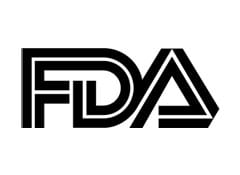Sign In

Menu
Suggested Searches
Recent Searches
Suggested Searches
Product Ratings
Resources
Chat With AskCR
Resources
All Products A-ZThe payment for your account couldn't be processed or you've canceled your account with us.
Re-activateMy account
Sign In
My account
Sign In


A new warning by the Food and Drug Administration might make you think twice before reaching for pain relievers like ibuprofen (Advil, Motrin and generic) and naproxen (Aleve and generic). The agency says these drugs, also known as nonsteroidal anti-inflammatory drugs, or NSAIDs, have a small, increased risk of triggering a heart attack or stroke, even if you don't have an existing heart condition. And, that's true even within the first few weeks of taking the drugs. Your risk is also upped if you take the medications for extended periods of time and if you take larger doses. The safety alert further strengthens advice our CR Best Buy Drug analysis has long offered.
Besides ibuprofen and naproxen, the warning also applies to prescription NSAIDs, such as celecoxib (Celebrex), diclofenac (Cambia, Voltaren, and others), and meloxicam (Mobic). Aspirin is not included in the FDA's warning. For a complete list, see the FDA's announcement here.
Have you changed your use of pain medications like ibuprofen and naproxen? Tell us how here.

The people at greatest risk of those problems are those who've either had a heart attack, or already have heart disease, because taking an NSAID increases the risk of causing a second heart attack, or death from causes related to a heart-attack, the FDA noted. If you fall into this category and pain or fever-reducing medications are needed, consider other drugs, such as acetaminophen (Tylenol and generic), which is not an NSAID. Another option is naproxen. Although the FDA included naproxen in its warning, some studies suggest it does not increase the risk of heart attack and stroke as much as other NSAIDs, according to our CR Best Buy Drugs report on these medications. To treat pain in a joint, using a prescription topical NSAIDs, like a gel or a cream, could be a good choice, too.
For more on NSAIDs, check out our free Best Buy Drugs report.
People with heart failure should not take NSAIDs at all, since the drugs can worsen the condition.
You should also avoid those medications if you have:
You should avoid NSAIDs, too, if you are:
For everyone else, if you need to take an NSAID, use the smallest dose that brings relief and don't take it any longer than necessary, says Barbara Young, Pharm.D., editor of consumer-medication information for the American Society of Health-System Pharmacists. That's because not only do NSAIDs increase your risk of heart attack and stroke, they can also cause bleeding in your stomach. Hormones, called prostaglandins, are blocked by NSAIDs. These substances play a role in causing pain, inflammation, fever and muscle cramps and aches. But they also help protect the stomach lining, and, when blocked with NSAIDS, there's an increased risk of stomach bleeding and ulcers.
These risks—GI bleeding, stomach ulcers and heart attack and stroke—with NSAIDs increases with age. The older you are, the more caution needed when taking NSAIDs, especially for long periods of time. Consider instead acetaminophen, but follow label instructions carefully. Consumer Reports medical advisers recommend taking no more than 3,250 mg of acetaminophen in a 24-hour period due to the drug's potential for causing liver damage, especially in those who are heavy drinkers.
Besides medication, to treat chronic pain due to arthritis, consider instead physical therapy or exercise programs, says Young. Those strategies might reduce your need for medication all together.
—Steve Mitchell
 Build & Buy Car Buying Service
Build & Buy Car Buying Service
Save thousands off MSRP with upfront dealer pricing information and a transparent car buying experience.
 Get Ratings on the go and compare
Get Ratings on the go and compare
while you shop